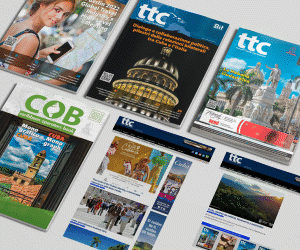By Frank Martin
Experts from around the world have taken on the arduous task of discovering what global tourism will be like after the disappearance of Covid-19.
Some results show very pragmatic tendencies.
Experts agree on the main point that the international tourism industry will have to save itself and operate with excellence.
The reasons are clear. An October 2020 UN report released amid the pandemic revealed that 120 million jobs in the tourism sector were at risk at the time.
So the international entertainment industry risked losing a trillion dollars in turnover that same year.
“The post-pandemic tourism industry must be rebuilt, as it is one of the most important sectors of the world economy,” UN Secretary General Antonio Guterres said at the time.
Then and now the concept is absolutely correct. Tourism accounts for 10% of world GDP and provides employment for millions of people around the world.
It is an old tourist practice to spend free time in contact with nature.
After the Covid-19 epidemic, around 80% of people in 48 countries are expected to have wellness trips on their itinerary projects.
Shifts towards more welfare policies seem essential for the industry.
An analysis published in Great Britain indicates that in the very near future consumers will focus more on their health and well-being, on value for money and will avoid crowded places, while planning their trips carefully.
Long-distance travel, especially by plane, will likely be questioned by many.
Travelers will be looking for “the best and fastest vacations.” They will also avoid a new wave of over-tourism.
Trends have already been discovered about people trying to alleviate the now dreaded mental health stress fueled by the pandemic.
“Recharging the batteries” will be the first objective of many tourists on their trips.
An extended forecast is that domestic tourism will be booming and will become a long-term trend among people who don’t want to stray too far from their homes.

MORE NEWS











